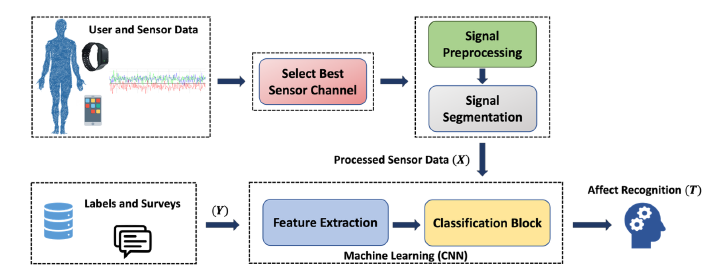Abstract
We present a data-driven approach for stress detection based on convolutional neural networks while addressing the problems of the best sensor channel and the lack of knowledge about stress episodes.
Publication
IEEE Journal of Biomedical and Health Informatics (J-BHI).

Research Assistant
I am a Computer Science PhD student in the Embedded Machine Intelligence Laboratory (EMIL) at Washington State University, Pullman.

Director
Hassan Ghasemzadeh is an Associate Professor of Biomedical Informatics at Arizona State University (ASU) and a Computer Science Adjunct Faculty at Washington State University (WSU).
